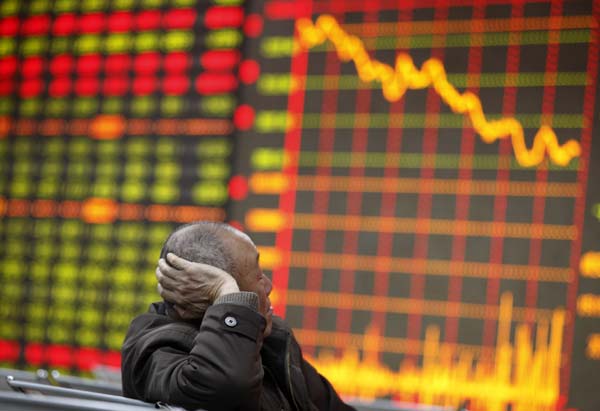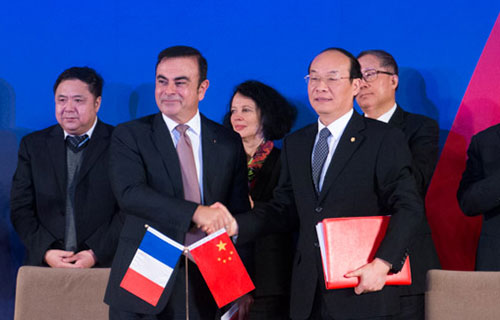

|
 |
|
A man observes stock prices at a securities brokerage on Friday in Huaibei, Anhui province. The Shanghai Composite Index has been dropping since last Tuesday, the longest losing streak since 1994, according to Bloomberg News. Provided to China Daily |
The benchmark Shanghai Composite Index shed 2.02 percent to 2,084.79 points. Turnover remained relatively low, although it expanded to 72.2 billion yuan ($11.8 billion) from Thursday's 61.5 billion yuan.
The index has been dropping since last Tuesday, the longest losing streak since 1994, according to Bloomberg News.
The People's Bank of China said on its micro blog on Thursday night that it had conducted short-term liquidity operations to ease funding conditions. These operations will continue, it added.
Media reports quoted unidentified sources as saying the PBOC injected 200 billion yuan into the market, but the sources didn't specify the terms or the counterparties.
Analysts said the central bank's action failed to soothe participants' nerves, because a behind-the-scenes liquidity operation is very different from an open market operation. Fears of a renewed cash crunch have sparked pessimism in the market.
"The PBOC intends to avoid loosening policy and has not conducted open market operations in the past two weeks," said Zhang Zhiwei, Nomura Holdings Inc's chief China economist.
The continued suspension of open market repurchase operations after the tapering announcement by the United States Federal Reserve Board may have made commercial banks worry about a liquidity squeeze. The year-end effect is also pushing up liquidity demand, he added.
The seven-day repurchase rate, a gauge of liquidity in the financial system, increased 100 basis points to a six-month high of 7.60 percent in Shanghai on Friday, compared with 7.22 percent during the June credit crunch.
Borrowing costs have climbed in recent weeks in China as the government pushes forward with interest rate reform. During this time, the PBOC has curbed cash injections in its open market operations.
The PBOC usually conducts repurchase or reverse-repurchase operations on Tuesdays and Thursdays, but it hasn't offered the latter for more than two weeks, the longest pause since July.
Reverse repos involve short-term asset purchases that add funds to the financial system.
Almost all the sectors, except for marine operations and the food industry, were hit by Friday's equity retreat.
Gauges for nonferrous metals and banks each declined by more than 3 percent. The culture and media sector dropped by 2.16 percent.
"The culture and media sector has seen the biggest gain in share prices this year. However, little of the growth is being supported by substantial performance achievements by the companies," said Hu Yunfeng, an analyst with Wanjia Asset, a mutual fund based in Shanghai.
The bright future of Internet and mobile applications, coupled with the gloomy outlook for cyclical industries, is helping to attract capital into this sector.
However, if liquidity becomes tight and there is no hot target for speculation, capital may flow out of the market and cause a share price drop.
Fund managers dumped shares in Huayi Brothers Media Corp, a Shenzhen-listed film production company, on Wednesday and Thursday. Its latest movie, Private Tailor, disappointed the market.
The dramatic twist surprised individual investors, who had seen the company's share price increase by 30 percent from the beginning of December in the days leading up to the release of the latest film.
On Friday, however, the share price of Huayi rallied 4.93 percent to 30.43 yuan.
 Lamborghini launches Aventador LP 720-4 50° Anniversario
Lamborghini launches Aventador LP 720-4 50° Anniversario
 Dongfeng Renault expects 1st China-made Renault SUV in H1 2016
Dongfeng Renault expects 1st China-made Renault SUV in H1 2016